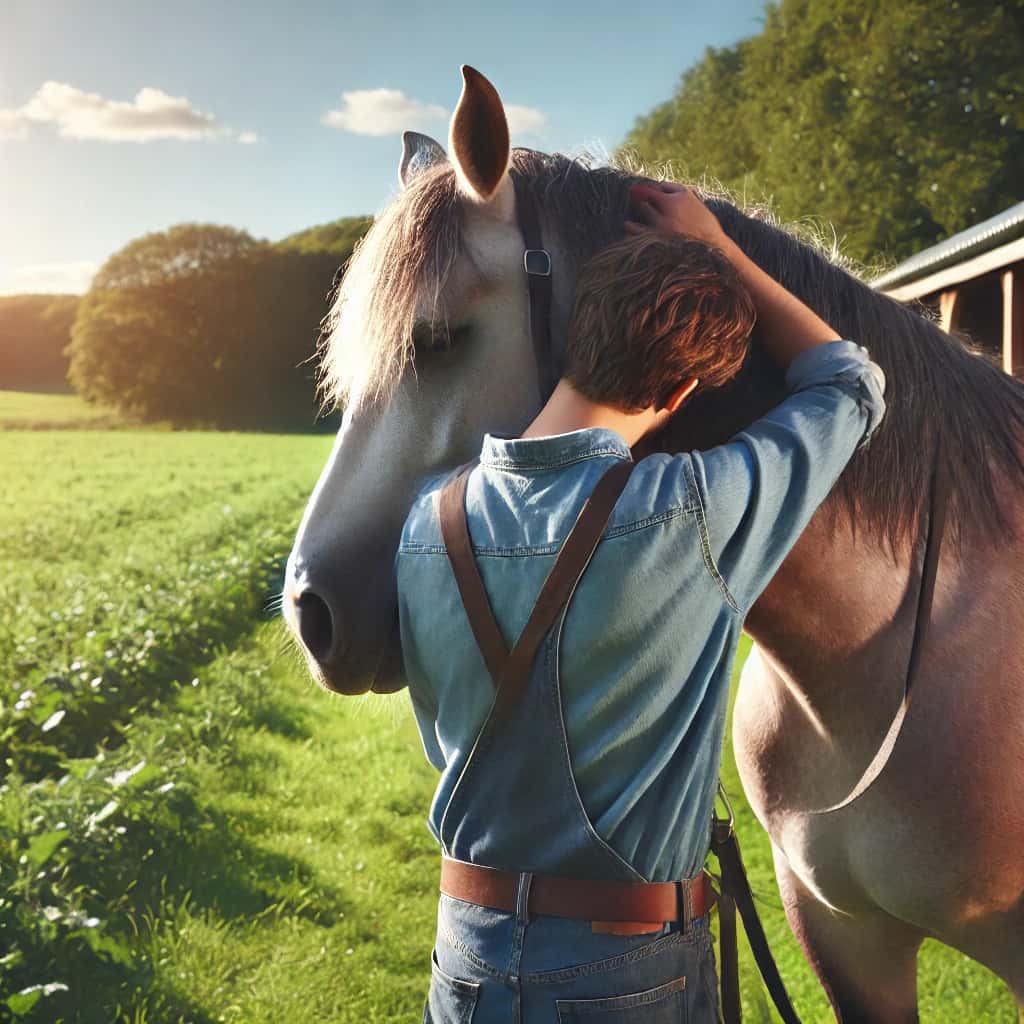Creating a close, trusting relationship with your horse is essential for a rewarding equestrian experience.
Horses are naturally social animals, and with the right approach, you can strengthen the bond between you and your horse, making them more responsive, trusting, and connected. Here are some practical, proven ways to bring your horse closer to you and build a relationship based on mutual respect and understanding.
1. Spend Quality Time Outside of Riding
One of the best ways to deepen your relationship with your horse is by spending time together outside of the riding arena. Grooming, hand-grazing, and simply being around your horse without an agenda can make a significant difference. When a horse sees you as more than just a rider, they’ll start to feel more comfortable and trusting.
- Grooming sessions are particularly effective. Many horses enjoy the sensation, and it can become a bonding experience where they associate you with positive feelings.
- Hand-grazing gives your horse a chance to enjoy your company in a relaxed setting.
2. Practice Groundwork Exercises
Groundwork is essential for establishing respect and communication with your horse. By working together on the ground, you reinforce your role as a leader while creating a foundation of trust.
- Leading exercises, like stopping, backing up, and yielding to pressure, help your horse understand your cues and improve their attentiveness.
- Liberty work (working without a lead rope) helps develop a true connection, as it requires the horse to choose to follow your guidance without physical restraints.

3. Be Consistent and Patient
Horses are highly perceptive animals that value routine and consistency. By developing predictable behaviors and responding to your horse’s needs in a consistent way, you’ll help them feel more secure.
- Consistency in training helps your horse understand what’s expected, making them more likely to respond positively to your cues.
- Patience is essential; horses learn and bond at their own pace. Rushing the process can cause stress and prevent the formation of a strong relationship.
4. Use Positive Reinforcement
Rewarding positive behavior is a powerful way to make your horse feel valued and appreciated. When done correctly, positive reinforcement encourages your horse to respond to you willingly and joyfully.
- Treats can be a helpful way to reinforce desired behavior, but use them sparingly to avoid dependency or pushy behavior.
- Verbal praise and gentle pats are effective, especially when combined with a calm tone and body language.
5. Understand Your Horse’s Personality
Just like people, every horse has a unique personality. Taking time to observe your horse’s likes, dislikes, and natural tendencies will help you adjust your approach to fit their needs. Some horses are naturally affectionate, while others are more independent. By recognizing these differences, you’ll be better equipped to build trust and respect.
- Observation during downtime (such as while they are grazing) can give insights into their behavior and comfort levels.
- Learning their body language can help you understand when they’re relaxed, curious, or anxious.

6. Prioritize Your Horse’s Comfort and Well-being
Horses are more likely to bond with someone who cares about their well-being. Regular veterinary care, proper feeding, and suitable shelter show your horse that they’re in a safe, comfortable environment.
- Make sure tack fits properly: Ill-fitting tack can cause discomfort and reduce trust. Ensure saddles, bridles, and girths are well-fitted to avoid pain.
- Check health and diet: A healthy horse is a happy horse. Regular vet check-ups, quality feed, and clean water all contribute to your horse’s comfort and willingness to connect.
7. Practice Patience and Understanding
Building a close bond with your horse requires time and understanding. Recognize that horses have natural instincts and behaviors that can sometimes lead to misunderstandings. Being patient and understanding of your horse’s needs helps foster a sense of security and trust.
- Avoid punishment or anger: Horses respond poorly to aggression. Instead, try to understand the reasons behind their actions and respond calmly.
- Give them time to adjust: If your horse is new or recovering from a difficult experience, allow them time to feel safe in your presence.
8. Learn Natural Horsemanship Techniques
Natural horsemanship is a training philosophy that focuses on understanding and working with a horse’s natural instincts and communication style. By practicing these techniques, you encourage cooperation rather than forcing obedience.
- Join-Up and Trust-Building: Techniques like join-up, where the horse chooses to follow you of their own will, foster a close bond based on mutual trust.
- Yielding and Movement: Encouraging your horse to yield their movements (such as stepping aside) helps reinforce that you are a leader they can trust.
9. Allow for Rest and Relaxation
Horses appreciate downtime as much as people do. Giving your horse the opportunity to relax in your presence helps them associate you with calmness and comfort.
- Post-ride relaxation: After a ride, take a few minutes to let your horse relax with you. Loosen their girth, remove tack, and allow them to unwind without immediate demands.
- Bonding in the field: Sitting quietly in the pasture or paddock with your horse allows them to approach you on their own terms, building natural curiosity and connection.
10. Respect Their Boundaries
Understanding and respecting your horse’s personal space is crucial for trust. While many horses enjoy closeness, others may need time to adjust to physical touch or proximity. Recognizing when your horse needs space and when they’re comfortable with closeness will strengthen your bond over time.
Forming a strong bond with your horse takes time, patience, and a genuine desire to understand them. By focusing on their comfort, well-being, and individual needs, you’ll develop a closer, more trusting relationship. Remember, every horse is unique, so your approach should be flexible and responsive to their personality. Following these tips will help you foster a close connection with your horse, making your time together more fulfilling for both of you.

